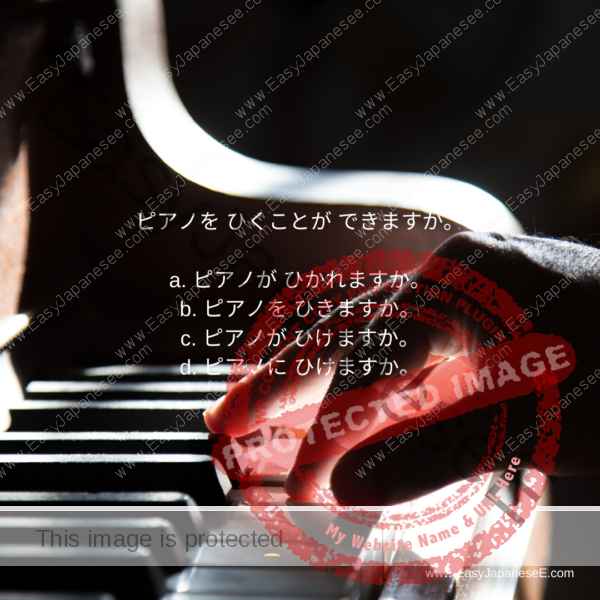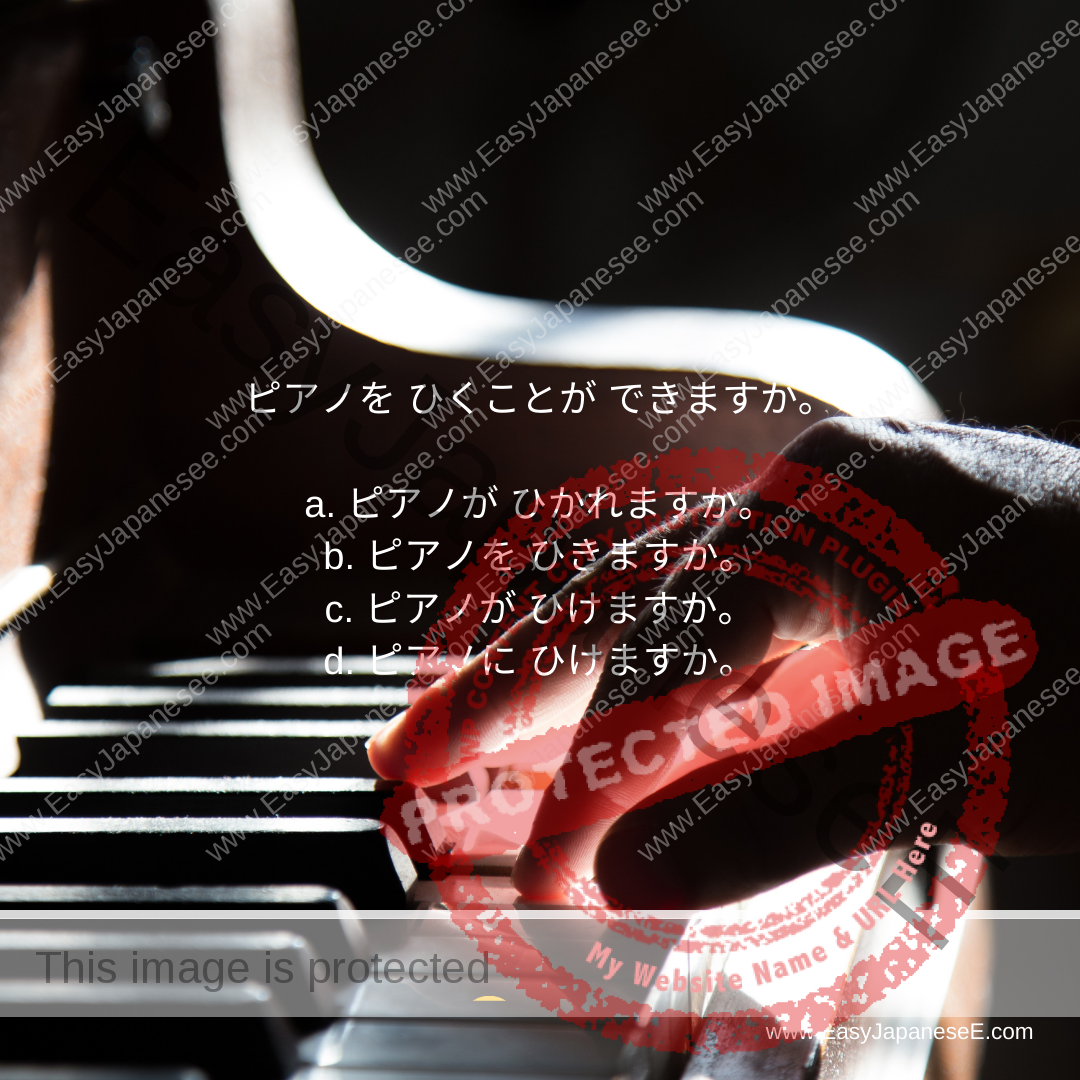
ピアノをひくことができますか。
a. ピアノがひかれますか。
b. ピアノをひきますか。
c. ピアノがひけますか。
d. ピアノにひけますか。
ピアノをひくことができますか。= Can you play the piano, and the sentence with that meaning is c. ピアノがひけますか。
The English “can” or “be able to” can be expressed in 2 different ways in Japanese. One is to use “[dictionary verb] + ことができる” and the other is to use a potential verb or a verb in its potential form.
A potential verb is a separate verb which derives from a go-dan verb and has the meaning of “can/able” in it. In order to change a go-dan verb into a potential verb, you need to change the letter before -ます from the -i sounding letter to the -e sounding letter of the same consonant column. i.e.
いいます/いう (to say) ⇒ いえます/いえる (can say)
かきます/かく (to write) ⇒ かけます/かける (can write)
たします/たす (to add) ⇒ たせます/たせる (can add)
As these potential verb are meant to end in -eます/-eる, they are all ichi-dan verb.
If you want to add a meaning of “can” to an ichi-dan verb, you need to change it into a potential form by adding られ between its stem and ます. i.e.
おきます/おきる (to get up) ⇒ おきられます/おきられる (can get up)
たべます/たべる (to eat) ⇒ たべられます/たべられる (can eat)
As for the 2 irregular verbs, します/する changes to できます/できる and きます/くる changes to こられます/こられる.
The recent trend is that people skip ら from a potential form verb (that ending in -られます/-られる), so many young people say:
おきれます/おきれる
たべれます/たべれる
こられます/これる
While it is important for Japanese learners to be able to understand these words, they have not quite become the standard yet, so I do recommend to remember the phrase with ら in it.
What has been explained up to here appears in this video.
One thing you need to remember with potential (form) verbs is that the particle を in a sentence without the meaning of “can” often changes to が in a sentence with a potential (form) verb:
ピアノをひきます。(I play the piano)
ピアノがひけます。(I can play the piano)スキーをします。(I ski)
スキーができます。(I can ski)
More examples:
漢字(かんじ)が書(か)けます。
I can write kanji characters.百円(ひゃくえん)で 何(なに)が買(か)えますか。
What can you buy for 100 yen?家(いえ)の前(まえ)の海(うみ)でおよげますよ。
We can swim in the sea in front of our house.野菜(やさい)がたくさんとれました。
We could harvest lots of vegetables.そんなことは言(い)えません。
I can’t say such a thing.ゆうべは眠(ねむ)れませんでした。
I couldn’t sleep last night.車(くるま)は急(きゅう)に止(と)まれない。
Cars cannot stop suddenly.お酒(さけ)が飲(の)めないんです。
I can’t drink alcohol.わたしはピーナツが食(た)べられない。
I cannot eat peanuts.朝(あさ)五時(ごじ)なんて、起(お)きられないよ。
I can’t get up at such an early time of 5 o’clock.そんなところには、いられません。
I cannot stay in a place like that.そのシャツは 小(ちい)さくて着(き)られません。
That shirt is too small. I cannot wear it.どっちがいいか決(き)められない。
I can’t decide which is better.こっちに来(こ)られますか。
Can you come here/this way?
For more study material for JLPT N4 exam, please visit JLPT N4 Grammar and Vocab and JLPT N4 Kanji pages.
EasyJapaneseE’s Basic Grammar Exercise Modules
Following short modules are available for subscription! Click the name of a module for more information.

